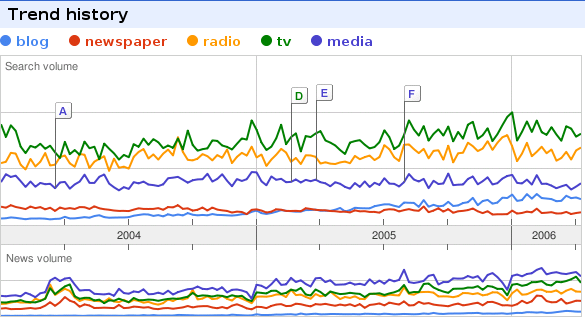Jimmy Wales of Wikipedia says to dream a little:
Imagine there existed a budget of $100 million to purchase copyrights to be made available under a free license. What would you like to see purchased and released under a free license?
…
I was recently asked this question by someone who is potentially in a position to make this happen, and he wanted to know what we need, what we dream of, that we can’t accomplish on our own, or that we would expect to take a long time to accomplish on our own.
One shouldn’t look a gift horse in the mouth and this could do a great deal of good, particularly if the conditions “can’t accomplish on our own…” are stringently adhered to.
However, this is a blog and I’m going to complain.
Don’t fork over money to the copyright industry! This is defeatist and exhibits static world thinking.
$100 million could fund a huge amount of new free content, free software, free infrastructure and supporting institutions, begetting more of the same.
But if I were a donor with $100 million to give I’d try really hard to quantify my goals and predict the most impactful spending toward those goals. I’ll just repeat a paragraph from last December 30, Outsourcing charity … to Wikipedia:
Wikipedia chief considers taking ads (via Boing Boing) says that at current traffic levels, Wikipedia could generate hundreds of millions of dollars a year by running ads. There are strong objections to running ads from the community, but that is a staggering number for a tiny nonprofit, an annual amount that would be surpassed only by the wealthiest foundations. It could fund a staggering Wikimedia Foundation bureaucracy, or it could fund additional free knowledge projects. Wikipedia founder Jimmy Wales has asked what will be free. Would an annual hundred million dollar budget increase the odds of those predictions? One way to find out before actually trying.
Via Boing Boing via /.
